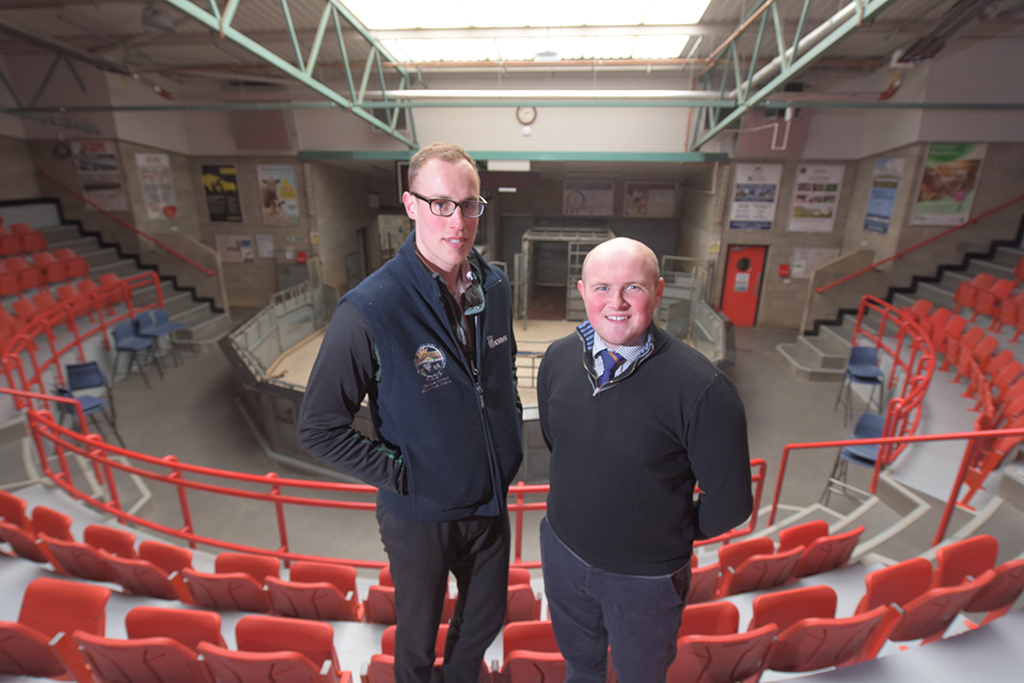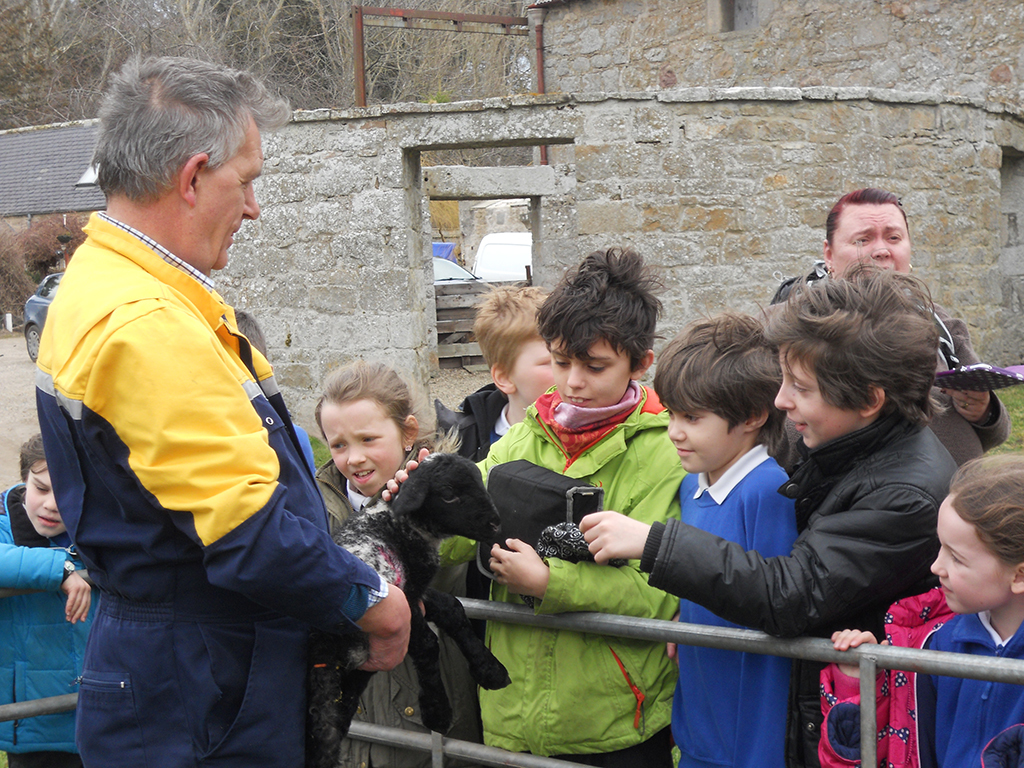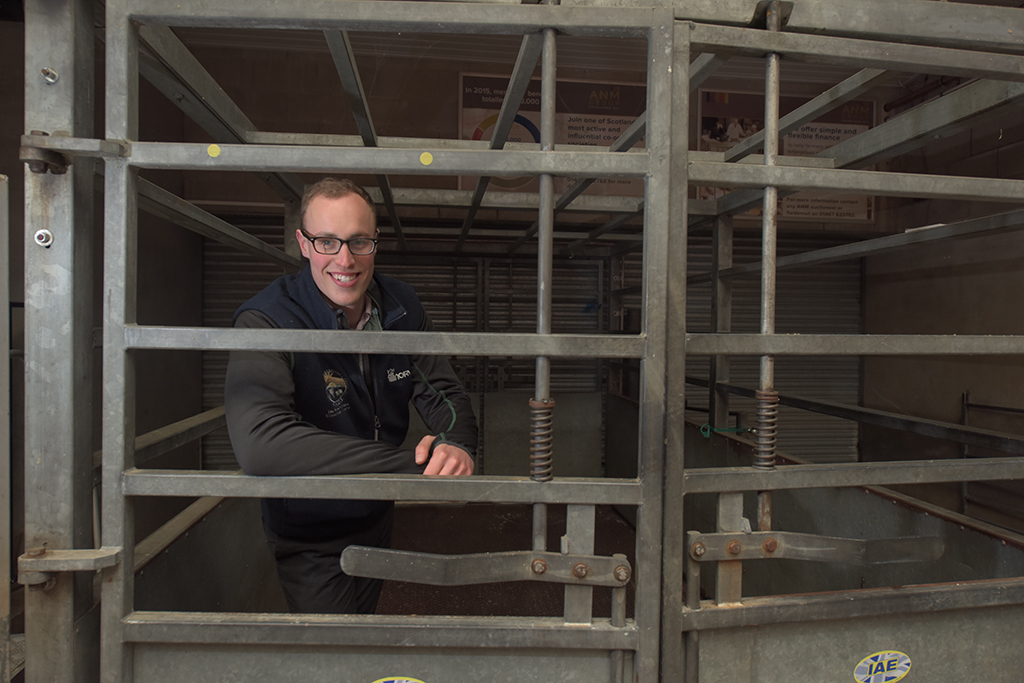
Stopping kids believe pasta comes from animals
With more than one in 10 school children in the UK believing that pasta comes from an animal, one fifth thinking fish fingers are made of chicken and 10% not realising that carrots and potatoes grow underground, it’s clear that work needs to be done to educate kids on the origins of our food.
The Royal Northern Countryside Initiative (RNCI), Scotland’s only self-funded countryside initiative, have been working for more than 20 years to do just that.
Providing school children around Aberdeen, Aberdeenshire and Morayshire with free farm visits, classroom talks and demonstrations in their countryside classroom on wheels, the team – run largely by volunteers – is working to educate children on life cycles of plants and animals, food production and technology, as well as careers in the agricultural sector.
While the initiative was at first run entirely by volunteers, today RNCI has one full-time member of staff, 23-year-old project manager, Rob Clunas.
Rob works alongside 25-year-old chairman Ellis Mutch, two sub-contracted educational assistants, 22 volunteer committee members, eight volunteer directors and more than 100 host farmers.

Royal Northern Countryside Initiative’s Rob Clunas, project manager and Ellis Mutch, chairman
With no funding from the government, the RNCI relies entirely on the generosity of benefactors in order to carry out their activities.
‘We’re an enthusiastic, young top team with a strong committee behind us which has grown in the last couple of years and is still growing,’ says Ellis. ‘And with that tight-knit committee we can do more and have been doing more and that’s why the level of kids we’re seeing keeps going up.’
In the last five years, the team have continued to grow and evolve and have introduced the Countryside Classroom on Wheels (CCOW), a purpose-built, bio-secure trailer designed to transport livestock and crop and feed samples to school playgrounds.
‘Rather than get kids out on farms which isn’t very practical, we can bring the farm to them,’ says Rob. ‘We bring animals in a secure environment to teach kids about farming and where food comes from in a far more experimental way so that they can touch and learn.’
CCOW offers children the chance to see animals at close range and touch and smell a variety of crops and feeds.
During the sessions, a member of staff or RNCI committee member will speak to around 16 children every 20 minutes about the story of milk, wool and cereals.

Logie Primary School at Pitgaveny
Going out to a school once a week, CCOW reaches around 7,500 children on average each year but Rob estimates this figure has topped 10,000 kids in the past year alone.
‘It’s been our busiest year and that’s with no further staff – that’s just with more volunteer hours, more hard work,’ he says.
With some teachers on the committee, the team are in tune with the school curriculum and have been trying to tie in with this, offering complimentary topics.
‘The same schools are coming back year-on-year because they know a certain topic is coming up and we fit in nicely with what they’re teaching,’ explains Rob. ‘We’ve also got new schools who are just hearing about us. We provide a service that’s free of charge, fully risk-assessed and we make it really easy for them.’
While younger children are fascinated by getting the chance to see animals up close, secondary school students studying biology or geography might be more interested in the scientific aspects of agriculture, and RNCI covers all bases.
As well as the countryside classroom, RNCI’s network of volunteer farmers go into schools to give classroom talks on what they do, often bringing props, photographs and samples. And for those pupils who are interested in pursuing a career in the agricultural sector, the RNCI has ties with educational organisations such as Scotland’s Rural College (SRUC) to point young people in the right direction.

Royal Northern Countryside Initiative’s Rob Clunas
As well as their outreach programme, RNCI reaches larger numbers by getting involved in big events such as Royal Northern Agricultural Society’s Science and Farming Day, where children are offered lectures and talks from SRUC and other industry experts such as nutritionists and agronomists.
There are also benefactors who offer one-off gifts, meaning RNCI’s work can often be steered by the support they receive. For example, through a funding application, the team were recently gifted Smoothie Bikes, offering kids the chance to peddle a BMX to create a smoothie so they could learn about healthy eating while having fun and getting fit.
Other recent projects have included ‘Grow your own Soup’, and a ‘Living Salads’ project whereby children are encouraged to grow the ingredients needed to make their own food.
Running on a skeleton budget with just one full-time member of staff, it’s impressive how much the Royal Countryside Initiative have achieved so far.
The team have just got their own RNCI truck with the help of a benefactor and they have secured an educational trailer to be based at shows.
As they continue to build on their success and extend their reach, the support of benefactors and volunteers will become increasingly important.
‘The more funding we get, the more children we can target,’ says Rob. ‘We reached 10,000 kids this year but what if next year we have a request for 12,000? Without funding we can only reach 10,000 because we’re limited to the number of volunteers.’
Found out more about the Royal Northern Countryside Initiative by contacting Rob Clunas, 4 Bedford Place, Aberdeen, AB24 3NX. Call: 0771 642 4147. Email: info@rnci.co.uk.
TAGS

